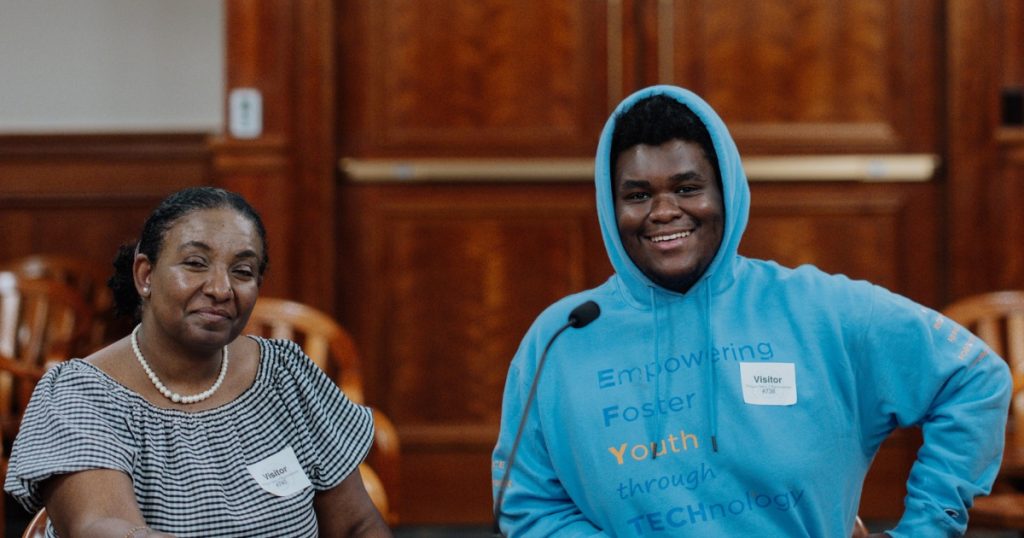A new Michigan law signed by Governor Gretchen Whitmer aims to ensure that foster youth in the state receive an education that leads to a high school diploma. This law comes in response to an educational crisis exposed by NBC News nearly two years ago, which revealed that vulnerable teens in state-funded residential facilities were being forced to repeat classes, delaying graduation and causing some to drop out. The new law will require the state to provide children in foster care with an education that prioritizes meeting graduation requirements for earning a diploma, as opposed to the previous requirement of providing only “appropriate educational services”.
The law won’t take effect until next year, but advocacy groups have been urging the state to start amending contracts with residential facilities to reflect the new educational expectations. The state Department of Health and Human Services has not yet responded to requests for comment on the matter. State Representative Stephanie A. Young introduced a three-bill package last year after seeing the NBC News report, with two bills signed by Whitmer last month. One of these bills requires tracking and reporting of data on foster youths’ education, while the other mandates regular review of educational programs in residential facilities to ensure they meet public school standards.
The new legislation is seen as a game-changer by advocates, who believe that students won’t have to worry about whether their classes will help them graduate, as it is now built into the law. The NBC News report served as a catalyst for Young to work on making these changes, as she was previously unaware of the extent of the issue. State agencies have also made changes, such as hiring employees to help foster youth navigate the education system and keep track of their credits. Christian Randle, a youth advocate who brought attention to the issue after realizing that classes he took in residential facilities wouldn’t count towards graduation, praised the new laws while expressing a wish for a faster process.
It took nearly two years for the bills to be passed, highlighting the ongoing challenges faced by foster youth in obtaining a proper education. Randle is still working on completing high school through an online program, a year after his expected graduation date, and has seen four of his friends restart high school in the two years since advocacy efforts began. Members of a group called Empowering Foster Youth Through Technology are advocating for additional measures, such as easier access to transcripts and quicker enrollment in school after placement changes. The new legislation represents a significant step towards improving the educational outcomes for foster youth in Michigan.
Overall, the new Michigan law signed by Governor Gretchen Whitmer sets out to ensure that foster youth in the state receive an education that leads to a high school diploma. This law comes as a response to an educational crisis exposed by NBC News nearly two years ago, which revealed that vulnerable teens in state-funded residential facilities were being forced to repeat classes, delaying graduation and causing some to drop out. The law will require the state to provide children in foster care with an education that prioritizes meeting graduation requirements for earning a diploma, as opposed to the previous requirement of providing only “appropriate educational services”. The law is seen as a game-changer by advocates, who believe that students won’t have to worry about whether their classes will help them graduate, as it is now built into the law. The NBC News report served as a catalyst for legislators to address the issue, with State Representative Stephanie A. Young introducing a three-bill package that tackles various aspects of foster youth education. The bills are still in the process of rolling out, with one aiming to track and report data on foster youths’ education, and the other mandating regular review of educational programs in residential facilities to ensure compliance with public school standards. State agencies have also made changes, such as hiring employees to help foster youth navigate the education system and keep track of their credits. Christian Randle, a youth advocate who brought attention to the issue after realizing that classes he took in residential facilities wouldn’t count towards graduation, praised the new laws but expressed a wish for a faster process. It took nearly two years for the bills to be passed, highlighting the ongoing challenges faced by foster youth in obtaining a proper education. Advocacy groups and members of a youth-led advocacy organization have been pushing for additional measures, such as easier access to transcripts and quicker enrollment in school after placement changes. The new legislation represents a significant step towards improving the educational outcomes for foster youth in Michigan.


